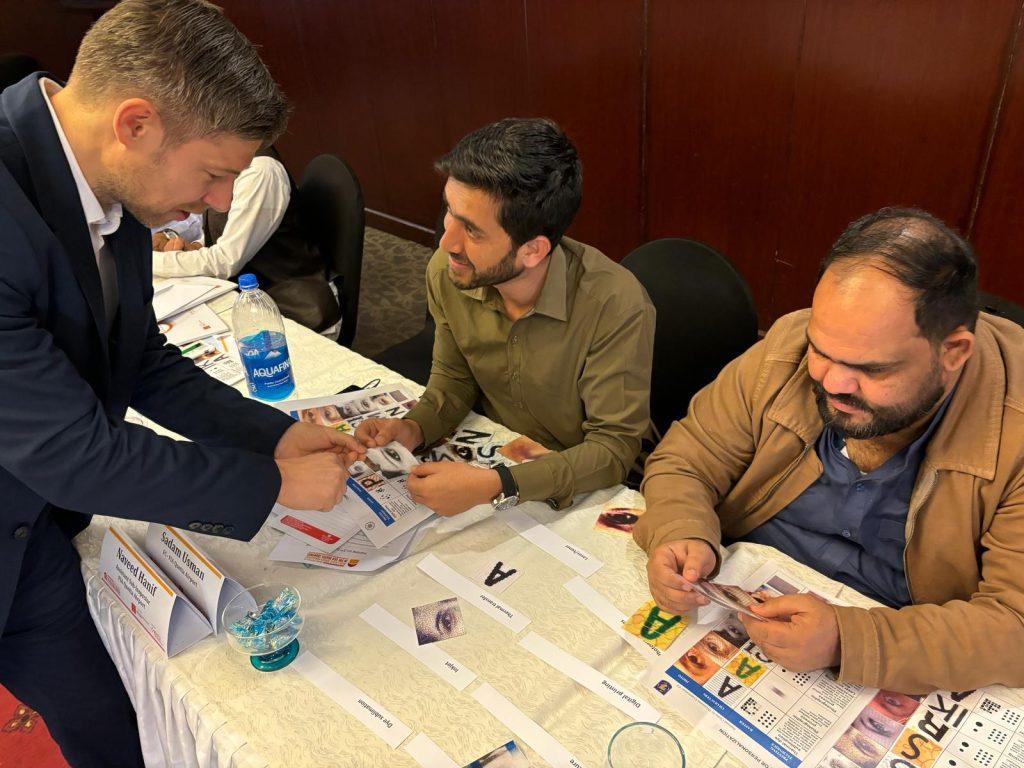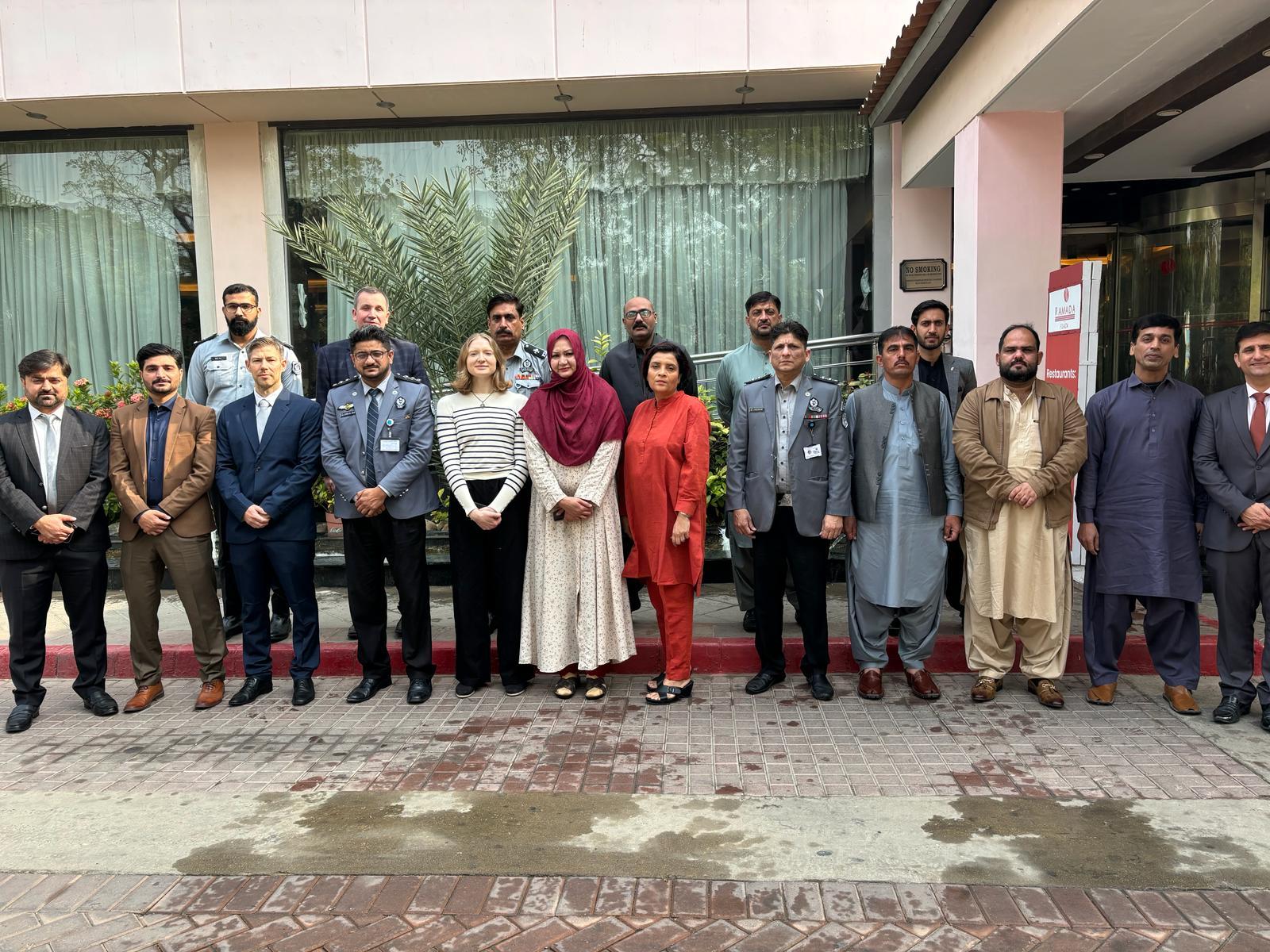ICMPD, with the support of Denmark, was proud to deliver the first of three advanced training workshops on document examination and second line border control functions to 12 officers from the Federal Investigation Agency stationed at Jinnah (Karachi) International Airport and Quetta International Airports.
The three-part training course, designed specifically for the FIA, provides designated immigration officers at Karachi and Quetta airports with the skills necessary to operate a second line of border control. A second-line border control office is a specialist function where expert-level knowledge, forensic equipment and access to global databases allows officers to identify and conduct investigations of travellers suspected of attempting illegal border crossing or related criminal activities. This may be via the use of forged travel documents, imposters, or misrepresentation of the purpose of travel. The use of forged and falsified documents facilitates a wide range of criminal acts, from migrant smuggling and trafficking in human beings, to narcotics smuggling, organised crime and terrorism.

The focus on Karachi and Quetta airports is strategically important – as well as Karachi being the busiest commercial airport in Pakistan, it is also a departure hub for irregular migration attempts towards transit countries in the Middle-East and Gulf region, whereafter routes often travel onwards towards Europe. As well as the involvement of organized criminal networks in such irregular migration routes, the risk to life and hardship such irregular journeys place on individuals and families attempting them is significant, and regularly ends in tragedy. Prevention at the point of departure at Pakistan’s borders is therefore in the interest of the security of Pakistan at large, but also necessary to safeguard the human-rights and safety of its citizens.
International cooperation is a fundamental element of effective border management. In this spirit, the training was delivered by two senior immigration experts from the Czech Republic, who were able to share a variety of international examples of second line control from Europe and beyond during the training.
This first part of the training included the development of technical skills in the context of document security, the use of equipment and national and international databases for document checking and behavioural analysis. The final two training events will equip officers to utilise information exchange and communication systems, reporting of trends and alerts, leadership skills and human rights, as well as training skills to support the development of technical skills among officers under their leadership.
The ongoing training course is part of a wider technical programme in the in the framework of the “Rights Based Management in the Silk Routes Countries” project, funded by the Danish Ministry of Foreign Affairs, supporting strengthened border control, with a focus on upholding a rights-based approach, across Pakistan’s international airports. The training will be complemented with installation of advanced forensic document examination equipment, access to international databases, and recommendations for business process improvement of border control functions.
